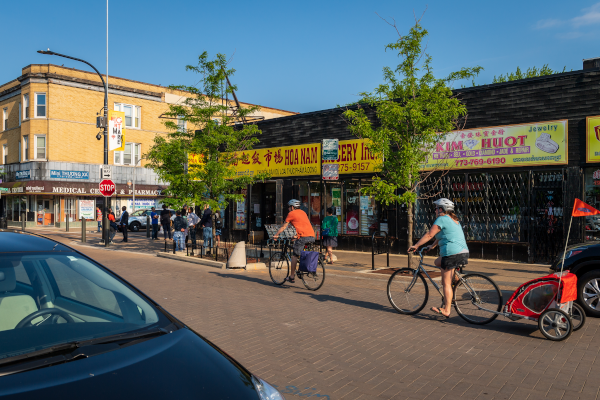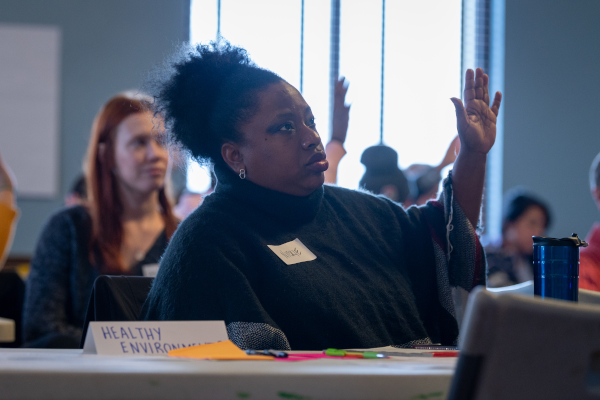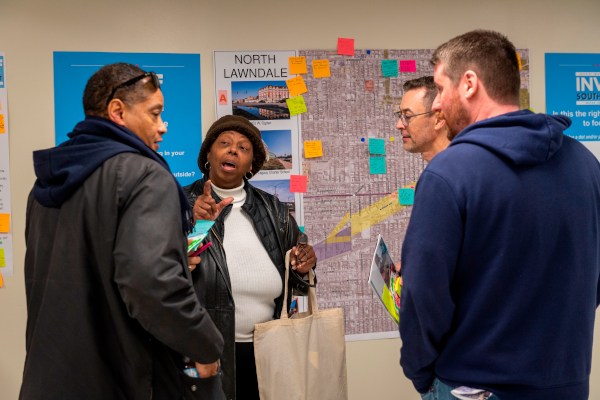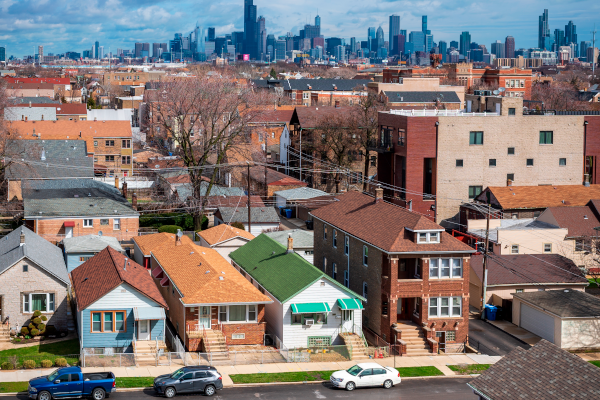Chicago HEiAP In Action
Learn about our work and projects
Ways we do our work
Capacity building
We provide training, technical assistance, and supporting health equity champion development.
Organizing & mobilizing
We support community leadership to organize and mobilize cross-sector collaborations to address the social and structural determinants of health.
Policy & systems change
We provide technical assistance, conduct policy-focused research that evaluates health impacts and inequities, and amplify the use of public health data, research, expertise, and framing.
CDPH is a founding member of Elevated Chicago, a collaborative that promotes equitable development around public transit hubs. In 2022, City Council passed Elevated Chicago’s Connected Communities Ordinance, informed by a health and racial equity impact assessment led by the HEiAP team and our partners.


The HEiAP team nurtured and provides ongoing support for the Chicago Food Equity Council. This groundbreaking government-community partnership is transforming and building a more equitable food system by removing barriers to urban farming, supporting Black, Indigenous, and people of color food entrepreneurs, and better connecting Chicagoans with nutrition programs and healthy, affordable food.
In partnership with the Office of Equity and Racial Justice (OERJ), the HEiAP team launched two Equity & Racial Justice Learning Cohorts to help City departments develop Racial Equity Action Plans.


The HEiAP team’s Equity Decision Support Tool (coming soon) will support City employees and elected officials in working with community leaders to incorporate equity into everyday decision-making. The HEiAP community accountability committee–made up of representatives from nine community-based organizations– provides strategic input into the HEiAP initiative and equity tools.
CDPH’s HEiAP team supports the Environmental Equity Working Group in leading a Cumulative Impact Assessment to identify neighborhoods that experience unequal exposure to multiple environmental, health, and social stressors.


CDPH’s Systems Change Collaborative, which included people with lived experience, developed recommendations with cross-sector experts to improve the health of Chicagoans experiencing homelessness and identify where policy changes, additional capacity, and new investments are needed to strengthen systems of care for this population.
Publications
ETOD Health & Racial Equity Impact Assessment (HREIA)
From October 2021 to March 2022, the Chicago Department of Public Health (CDPH) and the Illinois Public Health Institute (IPHI) engaged people who live near high-frequency transit routes in communities facing disinvestment and displacement pressures, youth leaders, and the City’s Disability Advisory Committee to identify the ways that equitable transit-oriented development (ETOD) can impact health and race equity across the city. This process affirmed that policies like the Connected Communities Ordinance, which center equity and community participation, will likely increase community vibrancy and housing opportunity, improve pedestrian safety, promote the use of active transportation modes, increase climate resilience, and foster social cohesion.
Systems Change Collaborative Report
The Chicago Department of Public Health (CDPH) convened a group of community-based organizations and members to form a Systems Change Collaborative to Improve the Health of People Experiencing Homelessness throughout 2022, with planning activities that began in August 2021. The Systems Change Collaborative is an initiative within Healthy Chicago 2025, and is part of efforts to build ongoing systems to advance racial equity in the aftermath of the COVID-19 pandemic. The purpose of the group was to develop system-level recommendations to improve health for Chicagoans experiencing homelessness in partnership with cross-sector experts and people with lived expertise, focusing on recommendations that CDPH and City partners could have a role in implementing. The Systems Change Collaborative identified 16 key recommendations to support health, equity, and well-being for people experiencing homelessness in Chicago.
Stay In Touch




